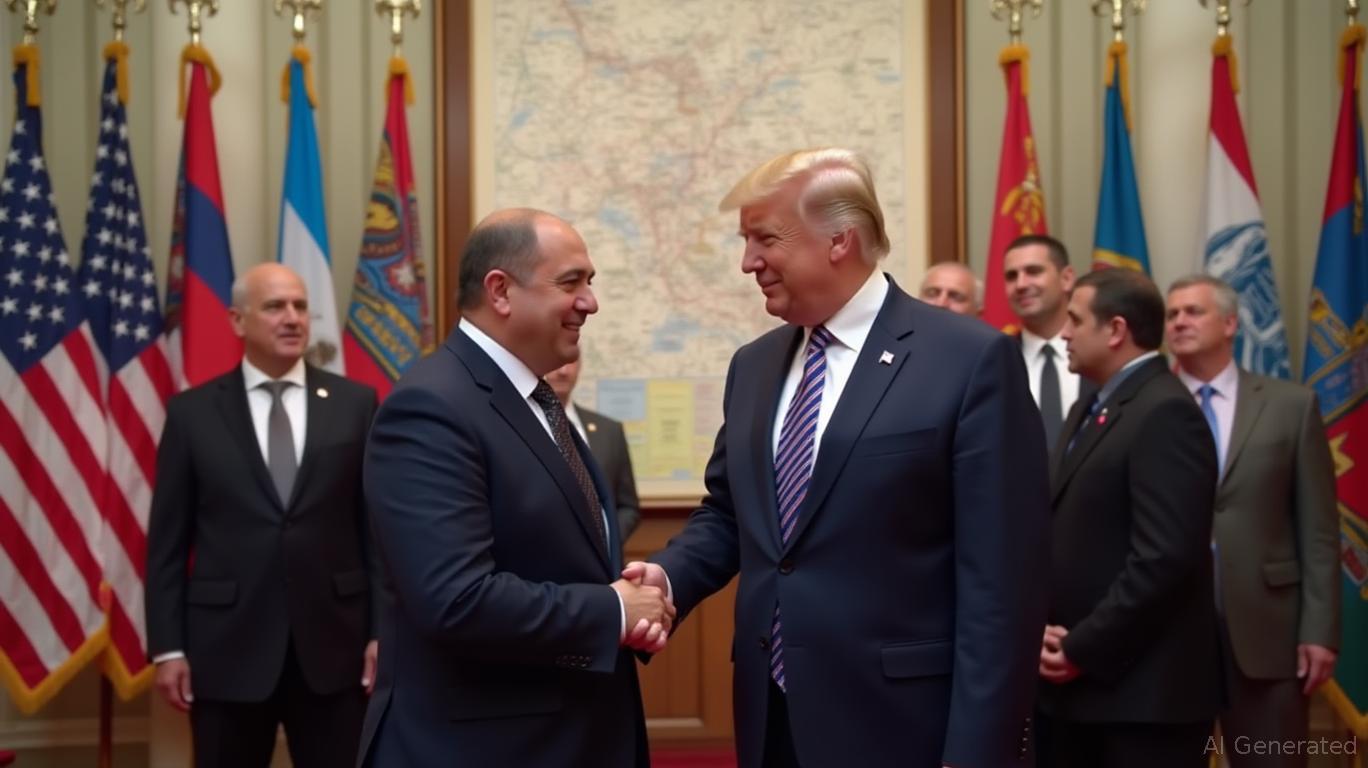President Donald Trump has marked a breakthrough in international diplomacy by orchestrating a peace deal between Azerbaijan and Armenia, a move anticipated to reshape geopolitical dynamics in the South Caucasus. Azerbaijani President Ilham Aliyev and Armenian Prime Minister Nikol Pashinyan met at the White House to formalize this historic agreement aimed at ending more than three decades of conflict over Nagorno-Karabakh, a region central to their longstanding enmity. The agreement paves the way for enhanced economic and security collaboration through bilateral agreements with the U.S., thus unlocking the vast potential of the region in areas such as trade, transit, energy, and technology.
President Aliyev expressed profound gratitude to President Trump, highlighting the unprecedented accomplishment of achieving peace that had eluded many for decades. Prime Minister Pashinyan echoed this sentiment, noting the significance of the milestone achieved through Trump’s resolute commitment to diplomacy. The peace accord promises a brighter, secure future for the children of both nations, offering a chance to leave behind conflict and enter a new chapter based on mutual cooperation.
The key component of the deal includes the establishment of a transport corridor linking Azerbaijan to its Nakhchivan exclave through southern Armenia, which will be operated under a 99-year lease by a U.S. consortium. Analysts predict this corridor—dubbed the Trump Route for International Peace and Prosperity—could alter the balance of power in the region, raising concerns from Iran about its potential geopolitical repercussions.
This American presence near Iran’s border could disrupt Tehran’s access routes to the Black Sea and Europe. Iran has voiced strong opposition, likening the move to geopolitical suffocation and political treachery aimed at undermining its influence with regard to Armenia’s territorial integrity.
Azerbaijan, bolstered by support from Turkey, has embraced the deal, recognizing it as a strategic advantage that lifts prior restrictions on military cooperation between Azerbaijan and the U.S. President Aliyev views the signing of the agreement in Washington as a testament to its binding nature, emphasizing the symbolic significance of the event and affirming the commitment of all parties involved.
However, in Armenia, the deal has sparked critical reactions from segments of the Armenian-American community, particularly in Massachusetts. Concerns are rising about the implications for Armenian sovereignty and the preservation of cultural and historical heritage amidst shifting geopolitical relationships.
Despite opposition from regional powers like Iran and a cautious response from Russia—due to its diminished influence in the area—there is broad optimism among proponents that this agreement could herald lasting peace and prosperity across the South Caucasus. Turkey has expressed support, seeing the potential for the corridor to facilitate increased exports and economic growth in the region through projects like the Middle Corridor initiative which connects Europe and China while bypassing Russia and Iran.
As nations in the region stand divided over the accord, President Trump’s initiative signifies a major shift in regional alliances and strategic partnerships, with implications that extend far beyond the borders of Armenia and Azerbaijan. While critics and skeptics abound, supporters are lining up to nominate Trump for a Nobel Peace Prize, recognizing his role in steering complex negotiations towards a peaceful resolution.
This agreement also underlines the geopolitical ramifications of U.S. engagement in this historically volatile region, raising questions about future developments amid the lingering concerns of regional powers, including Iran’s strategic alliance with Russia and Armenia. Nonetheless, the hope for a stable and beneficial outcome persists, driven by the promise of enhanced regional cooperation and economic development.

